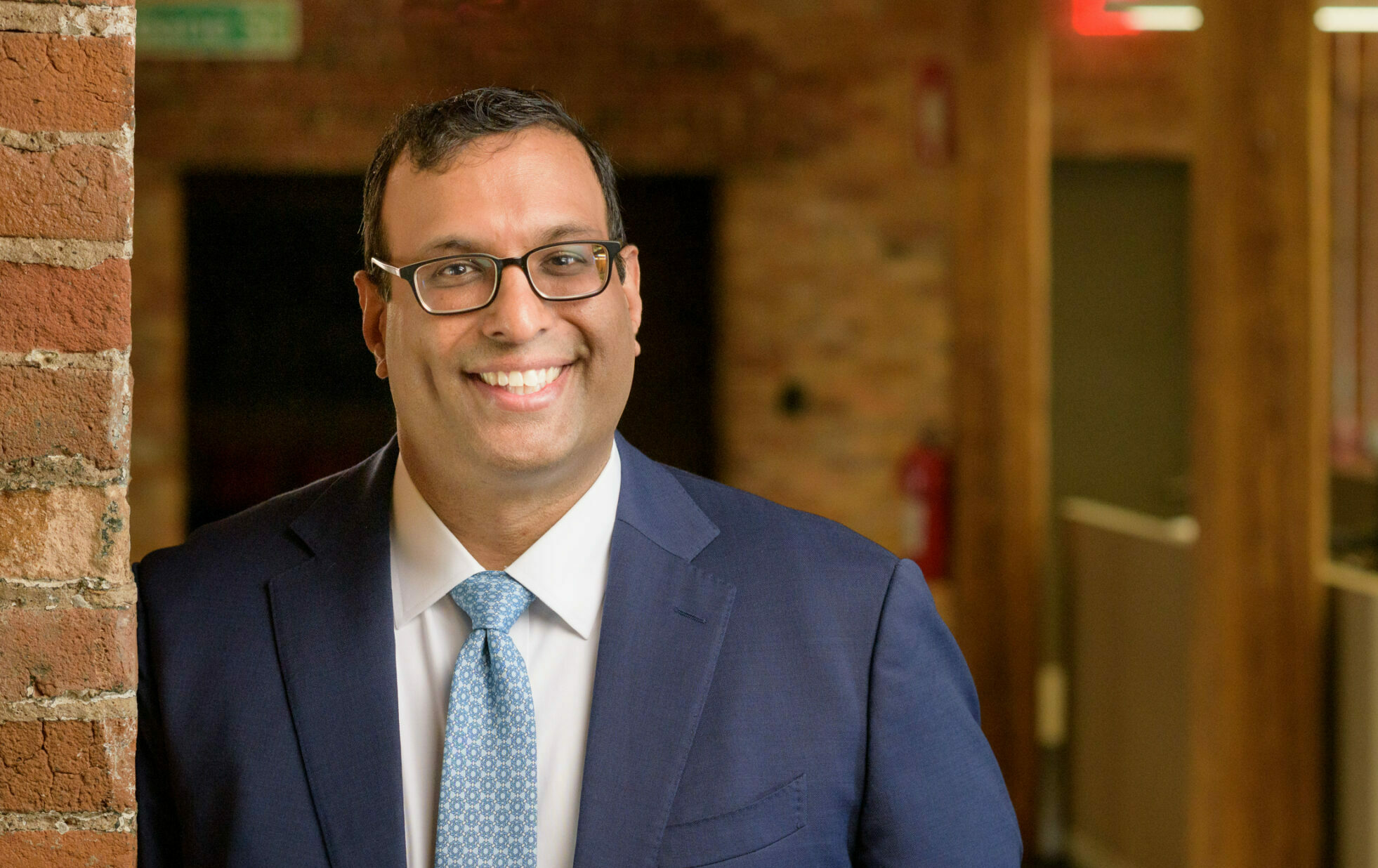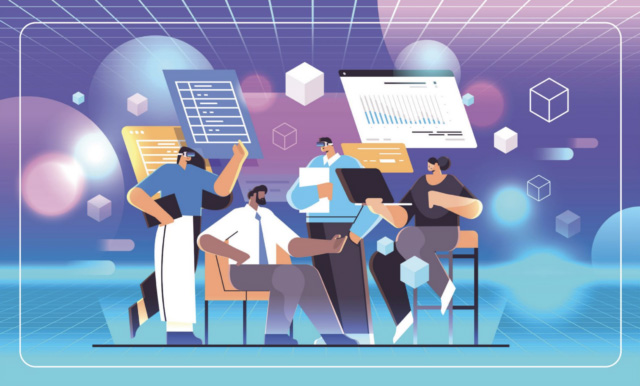Members of Generation Z, often defined as those born after the mid-1990’s, are graduating university and beginning to enter the workforce. We spoke with four business leaders to find out how they plan to integrate this new generation and leverage their unique strengths.
Demographic forecasters have predicted that by 2020 – in only six years – Generation Z will make up 36% of the global workforce. What effect will this new generational cohort, who are the first true digital natives and possess unparalleled digital savvy, have on the business world? This is the generation that will grow up with cloud computing as the norm; the generation that will instinctively turn to cloud marketplaces to find the business apps they need to succeed; and the generation that will rely on their iWatches and other wearable technologies every day. How well prepared are companies to cope with four, or even five, generations in the same workplace?
ADELA GIRAL, HR director, Microsoft, Mexico
Gen Y has been a challenging generation to integrate into the workforce, wanting to be heard and continuously developed. I think the impact of Gen Z (or the IT generation) will be a completely new way of working.
This new generation will work using a range of different devices and it is very socially-dependent.
Gen Z’ers will use crowdsourcing to generate new ideas and validate their marketing principles, and they will be much more driven to train and develop themselves than were their predecessors.
This group of people definitely cannot be managed under a traditional “command and control” structure. Gen Z’ers need to be given “self affiliation” projects, where they, as employees, choose the projects in which they want to participate.
Some futurologists predict that, in the coming years, businesses will even reach a point at which employees will be able to select their own managers. So managers will need to have a positive reputation and their own distinct “brand” as a leader to ensure that people want to work with them.
Generation Z’s facility with IT and social media will enhance the business pace because these people are “digital natives” and do not need to “learn” how to work using social media – they know when and where to use it and, importantly, where it really adds value.
However, they will no longer use email, so organizations had better adapt the workplace to allow for different vehicles of communication such as Yammer, Facebook and so on.
Employers can help address Gen Z’s “eight-second attention span” with improved communication that is designed around this time-span. This could incorporate training based on bite-sized pieces of learning and interactivity; gamification could be used in training, so staff could re-ignite their attention with every chapter, as they would do in video games.
With four generations in the work- place, the major challenge is adaptability; leaders need to foster greater adaptability to enable these generations to work together. We need the generations to develop a symbiotic relationship, in which they take advantage of one another’s skills and thrive because of their individual characteristics and in spite of their differences.
STEVE ROCKEY, previously head of people for restaurant chain, Byron, now HR consultant to the service sector.
The major impact Gen Z will have is to force businesses to change the way they use technology within the organization. It is most likely that learning and development will adapt first, so that online content is available all the time in quick and easy, digestible segments. E-learning also needs to take a massive leap forward in order to be fun and engaging rather than just compliance-based, as it is at the moment. So, certainly, more businesses will look to gamification specialists to understand how they can use this style of learning effectively.
Communication is another area in which Gen Z will have an impact. There will need to be a constant stream of updates and information as silence won’t be tolerated. It might not be relevant to Gen Z’ers specifically, but it’s about providing them with a choice, whether or not to read information and take it on board.
Finally, the concept of “the office” will be called into question, more so than it is at the moment. Will you really need a physical office or just offer an online space in which to communicate, see one another and share ideas and information? In my view, a multi- generational business will still need a physical presence in order to meet the needs of everyone; yet small businesses will be the champions of the “business bedroom”.
Gen Z will need to be managed remotely. These are not office types, they don’t want pre-meeting meetings nor a typical annual appraisal. They want instant and ongoing dialogue with their leaders about performance, recognition and constructive feedback. Tools like instant messaging, Skype and FaceTime will thrive within this generation – it’s how they interact with friends and family – although they’ll still appreciate some face-to-face interaction scheduled in their week. The entrepreneurial side of business will benefit from Gen Z’s free-thinking and multiple ideas downloaded from around the world in an instant. They will have to be given lots of room to grow and self-develop, and will not respond to command and control. Therefore, they will look to a leader who can let them run with an idea, delegate freely and give them sole responsibility for achievement.
I see it as an enhancement, not a distraction from work. If you want or need something, then someone, somewhere will know more about it than you. IT and social media will connect you to these people quickly and easily. It is the new enabler, the step-up from organized networking meetings.
The massive look-out is business culture. While it’s vital to allow people to be remote, autonomous and free- thinking, it cannot come at the cost of culture. Businesses will need to work harder at building their culture; sticking five values on a wall or having a manager running morning shift briefs based on the “value of the day” will be long gone.
Without trying to generalize too much (as not all Gen Z’ers have this issue), “the eight-second attention span” could potentially be a problem and a negative element of their inputs. When various generations work together, losing interest after eight seconds can be perceived as being rude, disrespectful and certainly not sufficient time in which to discuss an issue properly. And so, in my opinion, this will be where conflict occurs between the groups. To overcome this, balance needs to be found. For example, at times when they are required to be engaged in group work, those Gen Z’ers with eight-second attention spans will need to accept that they have to toe-the-line and interact. However, when it comes to their own work, it’s up to them to deliver as they see fit and be accountable for its completion by the deadline set.
Entrepreneurial outlook is the main benefit that four generations bring to the workplace, as free-thinking and remote-working will create new ideas and new approaches to the way we do things within the business environment.
There will be obvious social clashes with Gen X and Y who understand technology but don’t necessarily want to “live it” and are happy to meet, discuss issues in person and crave the more social side of work. Strangely, I see Gen Z and the Baby Boomers getting on better – with each respecting the experience and knowledge the other possesses and being keen to share through reverse-mentoring.
Business culture becomes an important element because when you have different generations co-existing, working in very different ways, they need to be working toward a common purpose, goal and reason for being. Culture is that unifying gold dust and without it, you are just a place in which to work. Therefore, every business should have a “ministry of culture” to keep track of culture and to unify the different segments; perhaps this will be the role of the “people teams” of the future.
EUGENIO PIRRI, Vice-president, people and organizational development at luxury global hotel management company, Dorchester Collection
Given all we have learned from Generation Y, I believe Generation Z will be less difficult to integrate into the workforce and, instead, will bring a comfort and ease that allows us to continue adapting our workforces through technology. For example, we’re returning to a time where listening to, and developing, people are again top of the agenda. How we use technology as a vessel that speaks, not only to Gen Z but all generations to drive feedback, communication, idea-sharing and praise, will be vital.
I also believe that, due to the sheer amount of information to which they have access and are comfortable handling, Generation Z will become subject matter experts, garnering far more clout and respect in the workplace than their predecessor generations; and doing so much more quickly.
As they are the IT generation, technology will play a significant part in how we manage them – working hours/remote working will need to be addressed along with ensuring work/life balance is integrated into the everyday. For this generation, it’s no longer a choice “to have or not have”, instead it’s a symbiotic relationship throughout each day.
I also believe we are underestimating Gen Z’s need for guidance and development. As a result, Gen Z’ers will have stronger connections with Gen X and the Baby Boomers, seeing them as individuals from whom they can learn and develop. Our job is to ensure the more established generations recognize the opportunities these bright young people bring to improve the workforce. Then they can act as mentors to offer the guidance and development being sought.
Gen Z’s facility with IT and social media will definitely enhance the workplace. This is a truly logical generation that does not know a world without technology. Trying to avoid or pretend this isn’t the case is a futile exercise. We must learn to use this expertise and Gen Z’ers’ natural ease with technology to keep our businesses and operations relevant to today’s standards and those of the future.
Having worked with every generation, I’ve seen eight-second attention spans (or less) in each – this isn’t specific to Gen Z. It merely seems more prevalent due to the fact that they are seeing the world in a way that is limitless and without boundaries; a world in which it’s not unusual to watch TV while simultaneously texting friends and searching Twitter to see what the wider population is saying.
This does not mean we cannot keep Gen Z engaged, though. As with all generations, attempting to make them conform will not work. Instead, it’s about recognizing the things they can do, what they can process, how they learn, and then consistently applying our values and respecting their individuality as we did when Gen X and Gen Y joined the workforce.
Within the Dorchester Collection, we have employees with more than 40 years of service and those who do work experience, placements, apprenticeships and stages – all starting at the age of 15. The common denominator is that they all want to be heard and respected; therefore, as a business, we must continue to prioritize communication, using tools which speak to every level.
With Gen Z, I foresee the major challenge being the ability to keep up with what motivates them, in order to engage them. Many companies will want them to fit into their pre-determined mould of what an “engaged” employee looks like. However, for Gen Z, motivations can change almost daily, depending on various factors such as the state of the company, the environment, business levels and current affairs. To overcome this challenge, we must find the spark of innovation to keep Gen Z’ers delivering what we want and to stay on top.
The greatest opportunity presented to us is the chance to realize what we can and cannot change, and then to work with our people to align them toward the common goal, while allowing them to be themselves.
Rajesh Padmanabhan, HR head, Vedanta Resources
The influx of Generation Z is a nice challenge to have. Our major areas of challenge and opportunity are going to be around decision-making or problem-solving, technology and management. Let’s take each of these in turn. If I focus on just three groups – the Baby Boomers, Gen X, and I will put Gen Y and Z together for the time being – we see significant differences. Many Baby Boomers in India still print out hard copies of digital data and spend time thinking and analyzing with pen in hand. Gen X, by contrast, sees data as structured, coming in bulk, but manageable and tractable. For the first time in Gen Y, and even more so with Gen Z, we see youngsters who cope with Big Data – masses of unstructured data, freely available, but not organized into neat messages or packages. Given that each generation will value its own decision-making methodology above those of the others, we will need to do more and more talking, and enable more real communication, and faster, in order to agree. I also see the focus of decision-making moving down the hierarchy, to where the massive amounts of data are more readily engaged with and understood, rather than staying at the top, at least for day-to-day decisions. Empowerment won’t be so much a top-down gift as a bottom-up grab!
I guess technology is the obvious challenge, as Gen Z is so tech-savvy. Gen Z’ers have grown up in a world in which the internet wasn’t invented or created – to them, it has always been there. So they use multiple devices at the same time and don’t strongly differentiate between their virtual worlds and the real world; they integrate them, apparently seamlessly. We will definitely have to face the need for upward mentoring on technology from this generation. How receptive will Gen X be to this approach? How will technology interact with strategy? If strategy is top-down and the technology push comes from the bottom- up, how will the two intersect in a way that makes sense and adds value? I’m not sure we’ve thought about this enough yet.
The third challenge, where I believe action is needed right now, is management. In India, a dearth of management talent has been exacerbated by our speed of growth. We have moved rapidly from an era in which, to be a project manager, you had to have grey hair and 15 or so years of experience. Now, our young Gen Y employees will soon be managing the fresh intake of Gen Z, with closer to eight years’ experience, mostly of a pretty technical nature. They have more lateral experience across the company than Gen X’ers, who were mostly developed in verticals, but they are being pushed into management more rapidly and without much training. We simply haven’t had the bandwidth, given our rates of growth. We will need to remedy this in a hurry, with some training. I don’t think that Gen Z will tolerate poor management coming from a generation that seems so close to it in many respects.
By 2016, the average age of the Indian population will be under 24 – so we’d better be ready for this huge transformation in the way business will need to be run.
An adapted version of this article appeared on the Dialogue Review website.



